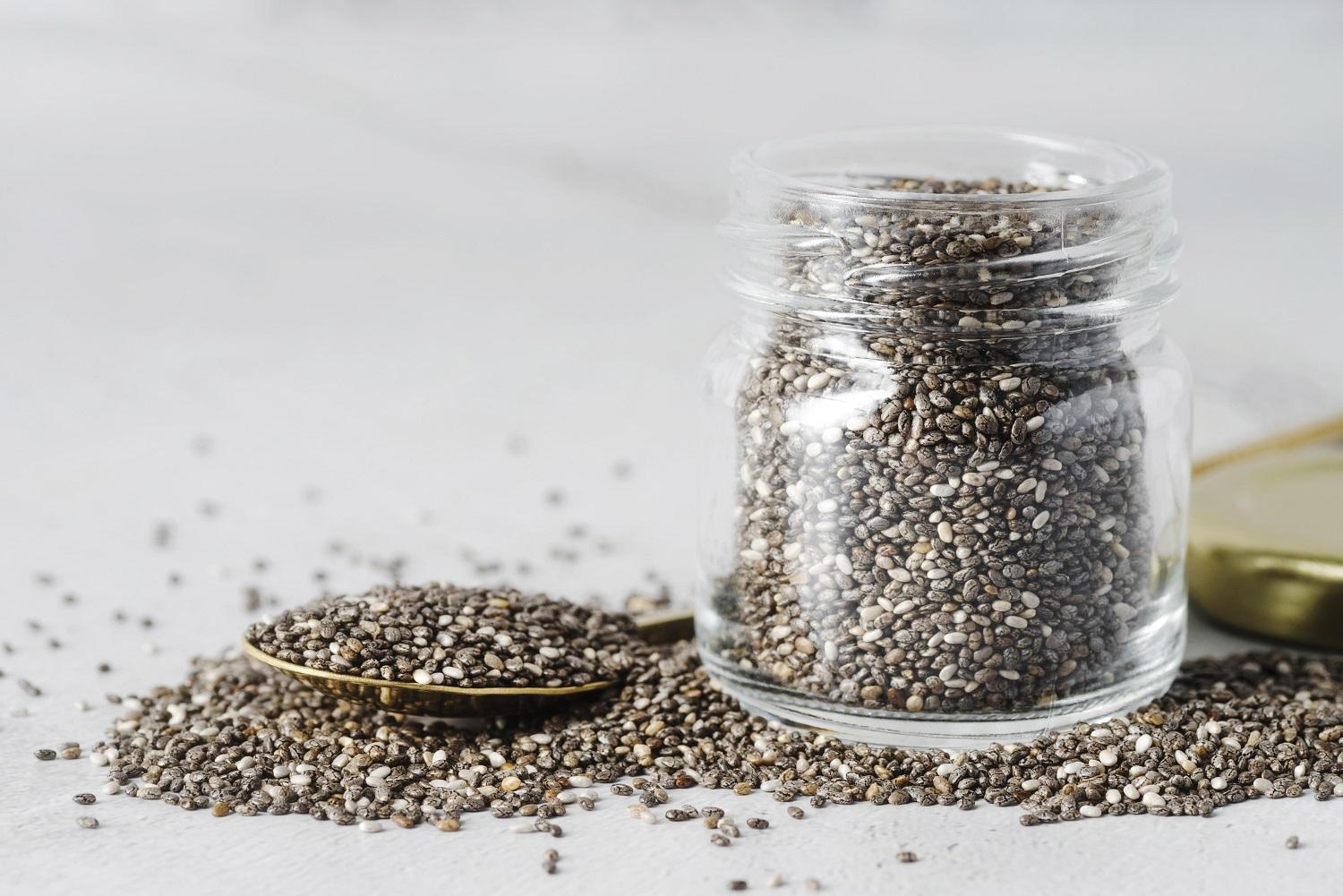Chia seeds have earned a reputation as a superfood, praised for their rich nutritional profile and versatility in recipes. From smoothies to puddings, these tiny seeds are everywhere. But while chia seeds offer many health benefits, consuming too many can lead to unwanted side effects. In this blog, we'll explore what happens when you go overboard and how to safely enjoy this powerful food.
Nutritional Powerhouse — But in Moderation
Chia seeds are packed with nutrients, including:
-
Omega-3 fatty acids
-
Fiber
-
Antioxidants
-
Protein
-
Calcium and magnesium
These qualities make chia seeds a great addition to a balanced diet. However, their high fiber and omega-3 content can also pose problems if consumed in large amounts. Like many healthy foods, moderation is key.
Common Side Effects of Eating Too Many Chia Seeds
While "too much of a good thing" is a familiar phrase, it's particularly true when it comes to chia seeds. Here are some of the most common side effects of overconsumption:
1. Digestive Issues
Chia seeds are incredibly high in fiber. Just two tablespoons contain about 10 grams of fiber, which is over a third of the daily recommended intake for adults.
When consumed in excess, especially without enough water, chia seeds can lead to:
-
Bloating
-
Gas
-
Constipation
-
Abdominal discomfort
For people with sensitive digestive systems or conditions like irritable bowel syndrome (IBS), too many chia seeds can make symptoms worse. To reduce this risk, introduce them slowly into your diet and always drink plenty of water.
2. Choking Hazard
One lesser-known but serious risk is the potential for choking. Dry chia seeds absorb up to 12 times their weight in liquid and expand quickly. If eaten dry and followed by water, they can swell in the throat and cause a blockage.
To stay safe:
This is especially important for children and elderly individuals.
3. Blood Thinning Risks
Chia seeds are rich in alpha-linolenic acid (ALA), a type of omega-3 fatty acid. While omega-3s are great for heart health, they can thin the blood if consumed in large amounts.
If you're taking blood-thinning medications like warfarin, aspirin, or are scheduled for surgery, consult your doctor before adding chia seeds to your diet in large quantities.
4. Allergic Reactions
Though rare, some people may experience allergic reactions to chia seeds. Symptoms can include:
People with allergies to mustard, sesame, or other seeds may be more likely to react to chia. If you're trying chia seeds for the first time, start with a small amount and monitor your body’s response.
5. Blood Sugar Fluctuations
Chia seeds can help stabilize blood sugar due to their high fiber content, but in some cases, they may lower it too much. This is especially relevant for people on medication for diabetes.
Signs of low blood sugar include:
-
Dizziness
-
Fatigue
-
Shakiness
If you have diabetes or are on medication that affects blood sugar levels, talk to a healthcare professional before significantly increasing your chia seed intake.
6. Medication Interactions
In addition to blood sugar and blood pressure medications, chia seeds may also interact with:
-
Anti-inflammatory drugs
-
Heart medications
To avoid complications, speak with a healthcare provider if you are on long-term medication.
How Much Is Too Much?
The general recommendation for chia seeds is about 1 to 2 tablespoons per day. This amount allows you to enjoy the benefits without overloading your system with fiber or omega-3s.
To introduce chia seeds safely:
-
Start with 1 teaspoon daily
-
Gradually increase to 1-2 tablespoons
-
Ensure you're drinking plenty of water throughout the day
How to Eat Chia Seeds Safely
Chia seeds are versatile, but the way you prepare them makes a big difference. Here are safe and effective ways to add chia seeds to your meals:
-
Soaked chia seeds: Mix with water, milk, or juice and let sit for 20-30 minutes
-
Chia seed pudding: A popular breakfast or snack
-
Blended into smoothies
-
Baked into muffins or energy bars
Avoid:
Who Should Be Cautious?
While most people can enjoy chia seeds safely, some groups should be extra careful:
-
People with digestive conditions like IBS or Crohn's disease
-
Individuals on blood thinners or diabetes medications
-
Those with a history of food allergies
-
Children and older adults who may struggle with swallowing
If you fall into any of these categories, consider consulting with a healthcare provider before incorporating chia seeds regularly into your diet.
Final Thoughts
Chia seeds are a nutrient-dense addition to your meals, but like any food, they should be consumed in moderation. Overeating can lead to digestive issues, interactions with medications, and other side effects. To enjoy chia seeds safely:
-
Stick to the recommended daily amount
-
Always soak them before eating
-
Drink plenty of water
-
Pay attention to how your body responds
If you’re looking for high-quality chia seeds, consider trying Pure Chia Seeds for the best nutritional value. And if you’re sourcing locally, there are many options for Chia Seeds in Pakistan through health food stores and online retailers.
With mindful consumption, chia seeds can be a powerful ally in your journey to better health.
FAQ
Can chia seeds cause bloating?
Yes, due to their high fiber content, chia seeds can cause bloating, especially if eaten in large amounts or without enough water.
How long should you soak chia seeds?
Ideally, soak them for 20-30 minutes before eating. This helps them expand fully and reduces the risk of digestive discomfort.
Are chia seeds safe for kids or elderly people?
Yes, but they should be soaked and served in small amounts to avoid choking or digestive issues.
What is the safest way to eat chia seeds daily?
Start with 1 teaspoon, soak them in water or milk, and include them in meals like smoothies, yogurt, or oatmeal.









Share this page with your family and friends.